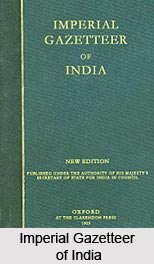 The Royal Decentralisation Commission reviewed the total subject of local self-government that had touched almost every arena of local governance. The report of the commission is still a guideline for state governments. The commission indicated out the deficiency of financial resources as the great hindrance in the efficient operation of local bodies
The Royal Decentralisation Commission reviewed the total subject of local self-government that had touched almost every arena of local governance. The report of the commission is still a guideline for state governments. The commission indicated out the deficiency of financial resources as the great hindrance in the efficient operation of local bodies
The commission laid stress on the improvement of Village Panchayats and Sub-District Boards. It suggested that the Village Panchayats should be empowered with more powers like--
a. Summarise jurisdiction in petty civil and criminal cases;
b. Acquiring of expenditure on village cleaning and menial village works.
c. Construction, safeguarding and supervision of village schools;
d. Managing of small fuel and fodder reserves etc. Above all, for proper operating of Village Panchayats, these should be given enough sources of income and intervention of district officers should be restricted.
The commission had accentuated the importance of Sub-District Boards and advocated that these should be set up in every taluka of tehsil and should be the foremost authorities in rural board administration. Regarding municipalities, the commission advocated the removal of surviving restrictions on their powers of tax revenue and also checks on regular grants-in aid from regional governments, excluding the attempting of large projects, like those pertaining to drainage or water supply. It proposed that municipalities should attempt duties for primary education and if enthusiastic, for middle vernacular school, or else the government should free them of any charges in respect to secondary education, hospitals, famine relief, police, veterinary works etc.
The Government of India Resolution of 1915 incorporated the official views on the advice of Decentralisation Commission. Most of the recommendations of the commission stayed on paper and the status of local bodies continued to be where Lord Ripon left it.



















